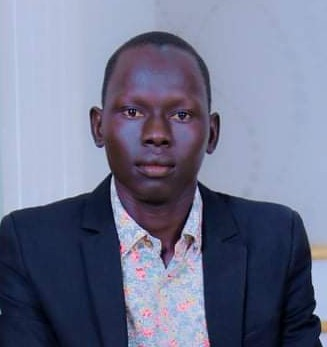By Chol Peter Majoh
Almost all African Countries are resistant to LGBTQI+ rights for a number of different reasons, including religion, tradition, and culture. Uganda, the leader among the anti-LGBTQI+ Countries, has recently strengthened her anti-LGBTQI+ law and pointed her finger at the West for enforcing the law. “The Ugandan president [last month] signed one of the world’s toughest anti-LGBTQ laws, a law that includes the death penalty.” source: Facebook, Democracy Now.
President Yoweri Kaguta Museveni promises never to sign the LGBTQI+ law. This move by the Ugandan president, HE. Museveni was criticized by the US President, HE. Joe Biden, who called it ‘a tragic violation’ of human rights. You could see a divergence in their opinions about this very law.
In Africa, for example, in Uganda, it’s unlawful. In America, it’s a human right. There’s a wide difference between Africa and America in regard to LGBTQI+ rights.
Nevertheless, on this very matter, some analysts say in over 30 African countries, homosexuals, bisexuals, lesbians, and others would suffer imprisonment and torture, as many countries are against it.
Unlike the West, African cultures forbid marriages between the same sexes; it’s considered immoral. Meanwhile, in the West and other worlds, it’s a human right, a choice one has to make. No one is forced.
to practice, and no one is denied by the law the right to exercise it. It’s up to an individual to practice or not. This doesn’t go with African beliefs about marriage and sexual morality.
On the other hand, many churches, particularly in Africa, stand firm against the LGBTQI+ law, calling it unbiblical and a sin. They cite, biblical references such as Leviticus – where it’s written: “A man
Shall not have sex with a man, as with a woman; it is an abomination” (Leviticus 18:22).
In South Sudan, the Episcopal Church of Sudan and South Sudan (ECS) has recently threatened to pull out of the Anglican Communion, Canterbury, should the LBGTQI rights and blessing of same-sex marriage be enforced.
The question remains: why? Why is it in Africa that LGBTQI+ is considered queer or taken as weird?
Well, African cultures and beliefs about sexual morality aren’t in any way supportive of such practices; instead, they condemn them to the core, and hence Africans are not convinced by the West’s assertion of
human rights, particularly the LGBTQI+ right(s). This, among other reasons, is why most Africans never want to concede but call LBGTQI+ rights a weird practice.
Furthermore, African constitutions initially ruled out LGBTQI+ and made it unlawful and punishable. Therefore, constituting it (LGBTQI+) again violates the already existing constitutions.
Forceful enforcement of LGBTQI rights without proper awareness among Africans by the international human rights authorities is another reason people aren’t positive about this right because they have never understood what it means.
In some of the countries where gay sex isn’t allowed—including Mauritania, Somalia, and Nigerian states that practice Sharia law—offenders can be punished by death or lengthy prison terms.
People in many of these African countries consider gay people foreign or alien to the continent’s culture. In fact, nearly half of all countries worldwide where homosexuality is outlawed can be found in Africa, according to a global review by the International Lesbian, Gay, Bisexual, Trans and Intersex Association (ILGA).
LGBTQI+ is seen as foreign by many Africans, making it impossible to accept.
African sociologist Dr. Nana Obiri Yeboah told Deutsche Welle (DW), Germany’s international broadcaster and one of the most successful international media outlets, that people were “exhibiting.
Homosexual tendencies” aren’t new in African society; however, gay people have been encouraged to be discreet about their sexuality.
Yeboah described homosexuality as “foreign. ”
People have practiced it [homosexuality] here for a long time, but because it is frowned upon, people have organized against it,” he added.
Yeboah said the push for the recognition of same-sex rights would continue to face stiff opposition in most African countries.
“It’s not part of our norm and has never been acceptable to us. So, it’s not part of our cultural orientation,” he explained, adding, “It is not a tradition.”
Same-sex relationships are legal in only 22 out of 54 African nations. In some countries, laws are being strengthened against people who identify as LGBTQ, which many African leaders consider “contrary to culture norms.”
The author is reachable via email: cholpetermajo@gmail.com, WhatsApp: +211(0)922295373




